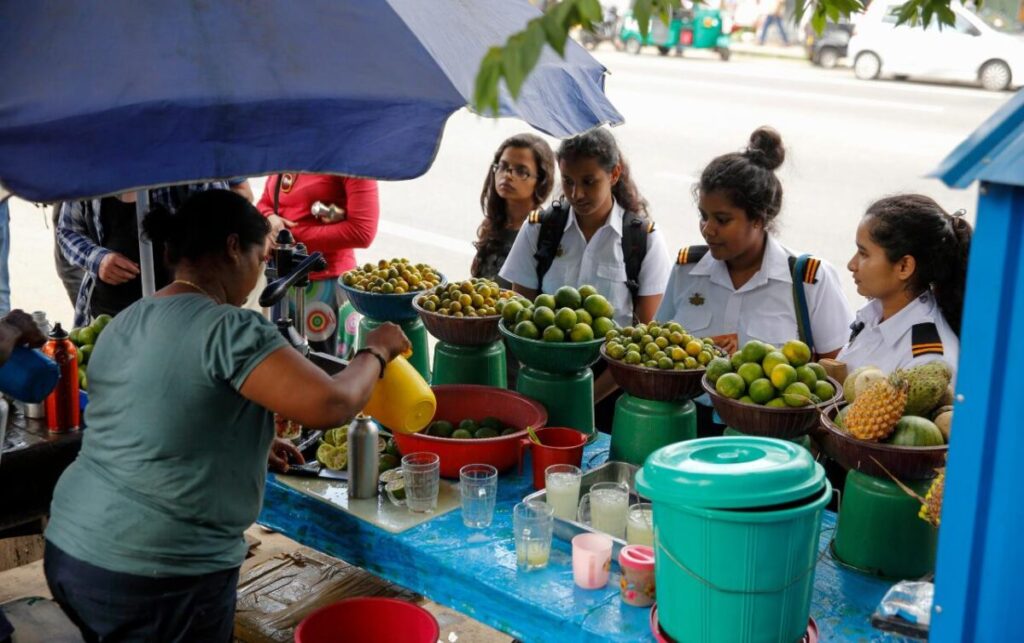How Micro, Small and Medium Enterprises in Sri Lanka Upgraded their Services during COVID-19
By Heli De Alwis and Gayathri Lokuge

Champika has been operating a small spice processing enterprise in Colombo since 2015. With the onset of COVID-19, her business struggled to continue operations. Inspired by her daughter’s suggestion, she started a social media page and business email to connect with customers. Today, Champika credits this simple digital initiative for helping her sustain her business amidst the pandemic.
Champika’s story is relevant to many Micro, Small and Medium Enterprise (MSME) owners who have been severely impacted by the effects of the COVID-19 pandemic. The Sri Lankan MSME sector is the backbone of the country’s economy. It experienced a roller-coaster ride as owners struggled to navigate the drastic aftermath of the pandemic. Yet, digital tools offered alternative avenues for MSME owners to sustain business operations.
Pandemic-Driven Digitalisation Efforts in MSMEs
A survey conducted in 2022, involving 60 MSMEs across Food, Apparel, IT and Construction sectors in Sri Lanka revealed that COVID-19 compelled many businesses to digitalize their core functions. This involved a significant shift towards selling products virtually, online transactions, and promoting businesses digitally. While some firm owners had already been using digital platforms prior to 2020, the pandemic acted as a catalyst, making digitalization essential for survival. Many of the surveyed enterprises (57%) used digital tools for selling goods and services, a significant increase from pre-pandemic levels (14%). Compared to other MSMEs, the food processing and manufacturing MSMEs experienced a remarkable surge (74%) in the adoption of digital technologies. Notably, women enterprise owners embraced online selling during the pandemic, with 48% making the transition. In terms of business promotion, Facebook emerged as the primary social media platform used by many MSMEs to reach out to a wider client base. The familiarity, simplicity, user-friendly nature, and low costs of social media have motivated MSMEs to actively engage with these platforms. Moreover, digital tools also facilitated interactions with public authorities, showcasing a major shift from pre-pandemic practices. It is noteworthy that the majority (60%) of MSME owners have recognized the invaluable role of digital tools in sustaining their businesses during the pandemic. In addition, they expressed willingness to continue utilizing digital tools in the future. It is a promising indicator for the sector’s development.
Challenges and Inequalities faced in the Digitalisation Process
Despite the fact that the pandemic created a boom in digital adoption, MSMEs had to face numerous barriers in the adaptation process. The lack of knowledge and devices, poor financial ability, and poor connectivity, were among the most challenging difficulties. Female MSME owners showed a low adoption when compared to male counterparts. The woman owners were not confident in using digital platforms; they had to rely on the help of their family. The MSMEs operating in urban settings have a significant advantage in engaging with online delivery platforms such as Uber and PickMe. However, the vendors of rural MSMEs had to rely on their own transport for deliveries. Unfortunately, in certain cases, their deliveries were obstructed because they did not possess curfew passes to travel during the lockdown. Additionally, some female respondents shared their experiences of online harassment while operating digital business platforms, which has reduced their willingness to continue using social media. The financial ability of the enterprise has also been a key determinant of digital adoption. MSMEs with good financial capabilities were able to make a quick shift by using advanced tools such as company websites. On the other hand, those who lacked financial resources had to rely on primary tools like social media pages and emails.
Achieving SDGs
Micro, Small and Medium Enterprises embarking on digitalisation support Sri Lanka’s journey towards achieving SDG target 8.2 on technological innovation and target 9.c on increasing access to Information and communication technology. The embrace of digitalisation by women MSME owners is a positive step towards SDG target 5.b on enhancing the use of ICT to promote women empowerment. However, the low digitalization rates of women compared to men emphasize the need of further empowering them, to reduce the gender gaps in digitalization and to achieve gender equality. Considering the positive attitude of MSMEs and the benefits of digital tools, supporting MSMEs with appropriate skills and investment that can increase the use of digitalization are recommended. This is crucial to ensure economic growth while making progress towards achieving the SDGs.
About the SVSS initiative
This article is part of Southern Voice’s “State of the SDGs” initiative. It provides evidence-based analysis and recommendations to improve the delivery of Sustainable Development Goals (SDGs). As a collaborative program, it compiles a broad range of perspectives usually missing from international debates. The report aims to fill an existing knowledge gap, enriching the SDG discussions and levelling the playing field with new voices from the Global South.
This article was originally published in – https://southernvoice.org/how-micro-small-and-medium-enterprises-in-sri-lanka-upgraded-their-services-during-covid-19/








